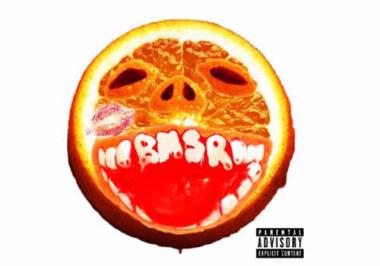Ariel Pink’s Haunted Graffiti
Mature Themes
(4AD)
Despite the title, Ariel Pink’s new album revels in its juvenile impulses. It’s filled with choruses of “Who sank my battleship?”, references to video games, and odes to schnitzel, nymphos, and “yummy pink slime.” Mature Themes is more defiantly quirky than 2010’s remarkable Before Today, but it’s also less successful. The ebullient “Only In My Dreams” and affecting “Farewell American Primitive” are among the best things he has recorded, but this batch of hazily produced, keyboard-driven songs are frequently hit-or-miss. It’s never a good sign when an obscure cover—Emerson’s “Baby,” a slinky and soulful duet with DamFunk—proves to be the album’s highlight. Ariel Pink has been rightfully touted for his ability to seamlessly blend shards of ’80s pop music into eccentric songs that sound naggingly familiar, but here his combination of sophisticated arrangements and sarcastic humor evokes Frank Zappa’s early recordings more than anything else.
—Jeff Jackson
Black Moth Super Rainbow
Cobra Juicy
(Rad Cult)
I want to set my iPod to wake me up to this album. “Black Moth Super Rainbow” is less a random collection of words, more an accurate description of the impression the music leaves you with. Cobra Juicy is the band’s fifth album, coming after a three-year hiatus. The tracks spin around, lighting up in Technicolor electric sound. There is darkness, too, an edge that shows up in beats and in raspy lyrics. On “Psychic Love Damage” you can’t understand the words, but it really doesn’t matter—the occasional coherent word enhances the feeling of fuzzy disorientation that the rest of the music creates. Cobra Juicy feels and sounds like the best kind of bad decision—it’s partially nostalgic, partially trippy, and fully seductive.It pulls from the ’70 and ’80s, but stays true to its times.
—Kathleen Broadhurst
Darlingside
Pilot Machines
(Planetary Group)
Combining watery pop progressions with clever melodies, state-of-the-art looping techniques and strange, somewhat otherworldly lyrics, this recording delivers rich, thought-out music that’s in no hurry to go in any particular direction. There are ballad-ish numbers, dancy rockers and wandering odes often embellished with the band’s trademark string arrangements. The common thread seems to be a progressive, trance-y element that recalls mid-career Yes or Peter Gabriel albums, replete with hypnotic arpeggios achieved via plucked violin strings, loopy 12-string guitar Fripperies and Bela Fleck-flavored banjo parts, with a very skilled, high tenor voice weaving a distant but beckoning elvish cantrip through the music’s stratosphere. Complex vocal harmonies are equally impressive on this effort, and the production (by local-ish rock royalty Nathaniel Kunkel) is simply outstanding. “When Fortune Comes,” while not likely to be a “hit single,” is a moving, exceptional song in every aspect.
—Tom Sturm



